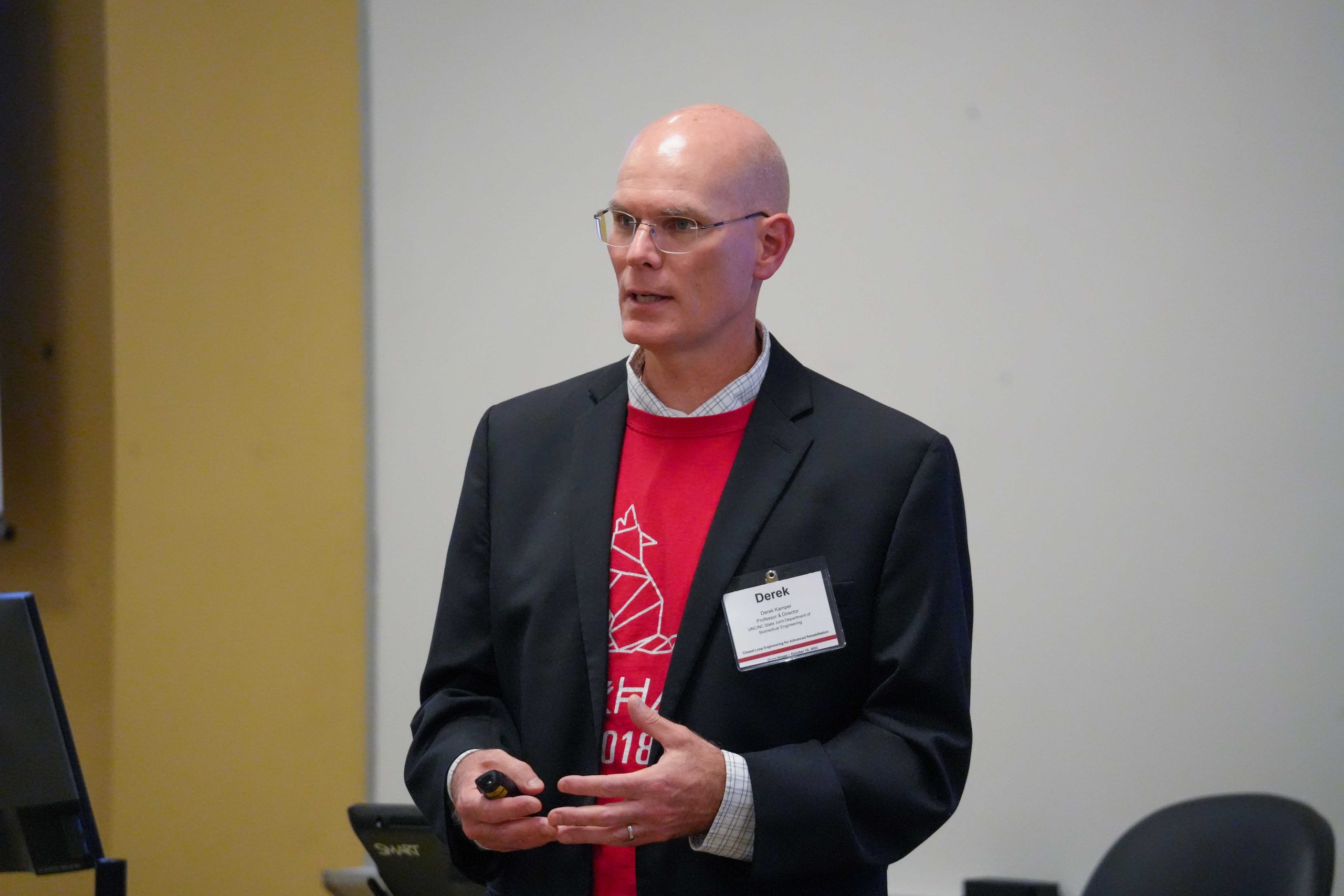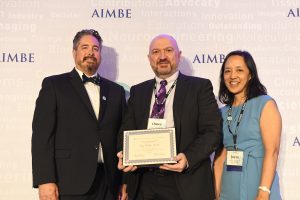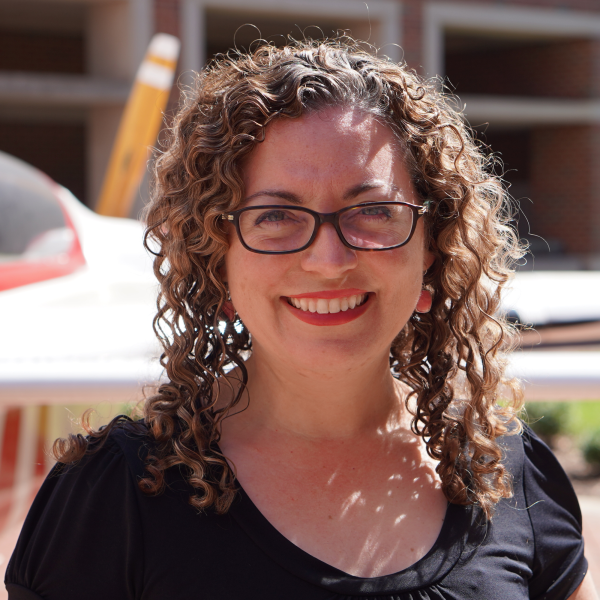Derek Kamper
Derek Kamper, associate professor of biomedical engineering and associate director of the Closed-Loop Engineering for Advanced Rehabilitation (CLEAR) Core, was elected to the College of Fellows of the American Institute for Medical and Biological Engineering (AIMBE). Kamper was nominated and elected by peers for his contributions to rehabilitation engineering through the identification of impairment
mechanisms and the development of interventions targeting these mechanisms.
 Election to the AIMBE College of Fellows is among the highest professional distinctions accorded to medical and biological engineers, comprised of the top two percent of engineers in these fields. College membership honors those who have made outstanding contributions to “engineering and medicine research, practice or education” and to “the pioneering of new and developing fields of technology, making major advancements in traditional fields of medical and biological engineering or developing/implementing innovative approaches to bioengineering education.”
Election to the AIMBE College of Fellows is among the highest professional distinctions accorded to medical and biological engineers, comprised of the top two percent of engineers in these fields. College membership honors those who have made outstanding contributions to “engineering and medicine research, practice or education” and to “the pioneering of new and developing fields of technology, making major advancements in traditional fields of medical and biological engineering or developing/implementing innovative approaches to bioengineering education.”
Kamper’s research centers on rehabilitation engineering with a focus on improving upper extremity function, especially for the hand, in cases of injury or disease. As an associate director of CLEAR Core, Kamper is a leader in closing the loop between wearable technology and human biology to optimize the use of devices that promote rehabilitation and control of hand function.
AIMBE Fellows are among the most distinguished medical and biological engineers including 3 Nobel Prize laureates and 22 Presidential Medal of Science and/or Technology and Innovation awardees. Additionally, 214 Fellows have been inducted to the National Academy of Engineering, 117 inducted to the National Academy of Medicine and 48 inducted to the National Academy of Sciences.
While most AIMBE Fellows hail from the United States, the College of Fellows has inducted Fellows representing more than 30 countries. AIMBE Fellows are employed in academia, industry, clinical practice and government.
AIMBE is the authoritative voice and advocate for the value of medical and biological engineering to society. AIMBE’s mission is to recognize excellence, advance public understanding and accelerate medical and biological innovation. No other organization brings together academic, industry, government and scientific societies to form a highly influential community advancing medical and biological engineering.
A formal induction ceremony was held during the AIMBE Annual Event at the Renaissance Arlington Capital View Hotel in Arlington, Virginia on March 25, 2024. Kamper was inducted along with 162 colleagues who make up the AIMBE College of Fellows Class of 2024.
Omer Oralkan

Omer Oralkan, adjunct associate professor in biomedical engineering and professor of electrical and computer engineering, was elected to the College of Fellows with AIMBE for pioneering contributions in capacitative micromachined ultrasonic transducers.
Oralkan was nominated, reviewed, and elected by peers and members of the College of Fellows “for pioneering contributions in the field of capacitative micromachined ultrasonic transducers for medical imaging, medical therapeutics and sensing.”
Oralkan joined the faculty at NC State in January 2012. His research interests are at the interface of electrical engineering and the life sciences, particularly in using integrated circuits and underlying technologies to implement medical devices and supporting systems for diagnostics and therapy. More specifically, his current research focuses on developing devices and systems for ultrasound imaging, photoacoustic imaging, image-guided therapy, biological and chemical sensing and ultrasound neural stimulation.
This information was originally published on March 25, 2024 by Charles Hall of the Department of Electrical and Computer Engineering at NC State, and the article in its entirety can be read here.
Katherine Saul
 Katherine Saul, associate professor in biomedical engineering and professor in mechanical and aerospace engineering, was nominated, reviewed and elected by peers and members of the College of Fellows “for outstanding contributions to rehabilitation engineering by developing breakthrough upper limb musculoskeletal models and simulation methods for designing rehabilitation treatments.”
Katherine Saul, associate professor in biomedical engineering and professor in mechanical and aerospace engineering, was nominated, reviewed and elected by peers and members of the College of Fellows “for outstanding contributions to rehabilitation engineering by developing breakthrough upper limb musculoskeletal models and simulation methods for designing rehabilitation treatments.”
Saul’s research centers around neural control of the musculoskeletal system, upper limb biomechanics, orthopedic rehabilitation, computational dynamic simulation of movement and musculoskeletal imaging.
Saul also directs the Movement Biomechanics Lab (MoBL), which investigates the relationship between musculoskeletal structure and function in the upper limb. The lab uses MR imaging, strength assessments and functional testing in conjunction with computational simulations of the upper limb to characterize and investigate upper limb function and neuromuscular control in healthy and impaired populations.
This information was originally published on March 25, 2024 by of the Department of Mechanical and Aerospace Engineering at NC State, and the article in its entirety can be read here.


